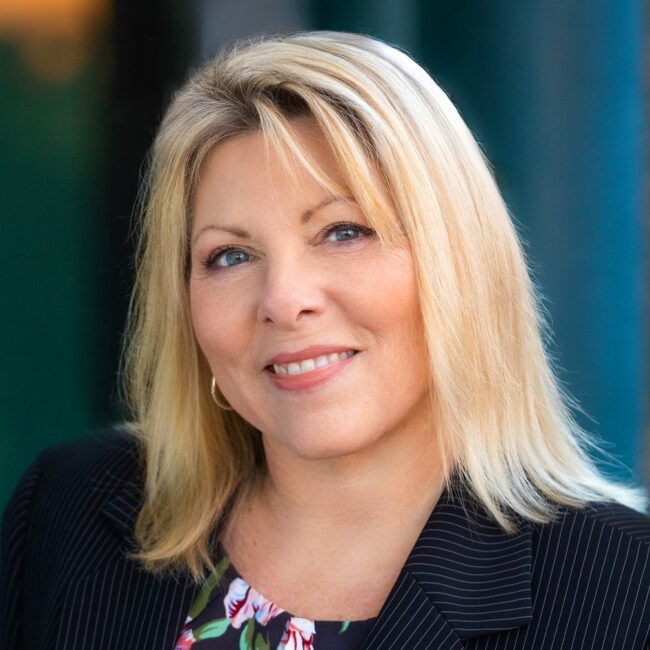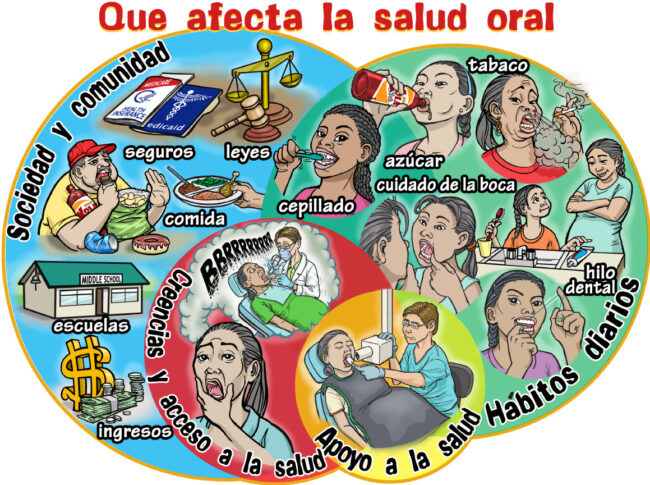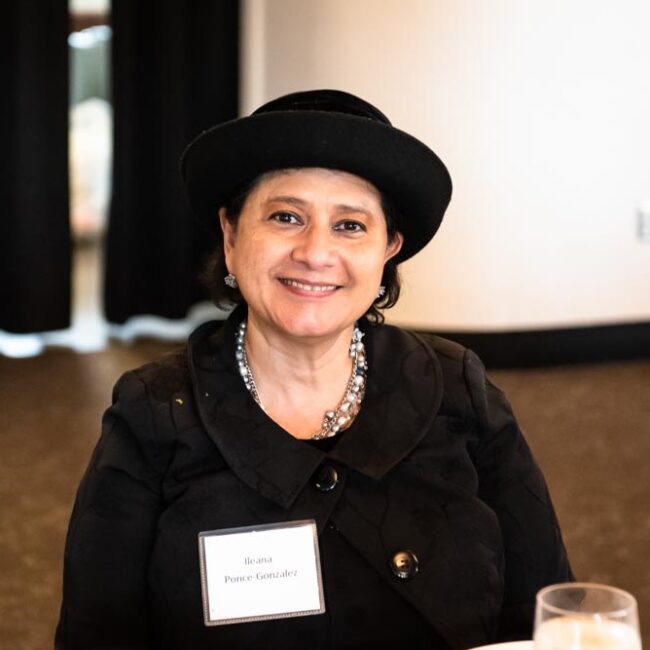
Community leadership and expertise are key to prevent disease and improve access to dental care.
Good oral health is more than a healthy smile. Where we live, learn, work, worship, and play affect our oral and overall health. During National Public Health Week, Arcora Foundation recognizes how our unique cultures and communities not only influence our wellbeing—but give us the tools to thrive.
What is public health?
Public health promotes and protects your health and your community’s health. The focus is on disease prevention and healthy behaviors. Examples of how public health impacts oral health include:
- Expanded access to fluoridated tap water, which is the most cost-effective and equitable way to prevent cavities for people of all backgrounds.
- Free dental clinics hosted at community gathering spaces, such as food banks and community centers.
- Health education, outreach, and care navigation provided in languages spoken in a community.
- Awareness campaigns on the health impacts of choosing water over sugary beverages.

“Good oral health is essential to good overall health. The State Department of Health and Arcora Foundation share the belief that everyone in Washington deserves a healthy smile. I’ve appreciated the partnership with Arcora over the years on efforts that support good oral health as a public health priority. That work includes the Smile Survey, assisting local water systems with community water fluoridation, supporting the Washington State Oral Health Coalition, and more. Our work together continues to ensure everyone has the prevention and access resources they need for a lifetime of good oral health.”
Shelley Guinn RDH, MPH
State Oral Health Program Coordinator
Washington State Department of Health
Arcora partners with state and local organizations to champion these and other public health efforts. Community-based solutions and respect for cultural norms and values can lead to the most meaningful progress. Through community learning grants and engagement opportunities, we center lived experiences in ongoing, collaborative partnerships to improve oral health outcomes.
Community health workers: innovators in public health.

Community health workers (CHWs) are trusted public health advocates and community navigators. One longstanding and valued partner, Community Health Worker Coalition for Migrants and Refugees (CHWCMR), leads innovative CHW practices to achieve health equity and social and environmental justice for migrant and refugee communities in Washington state.
Ileana Ponce-Gonzalez, founder and executive director of CHWCMR, explains the key role CHWs play in improving public health.
How do CHWs support public health?
Community health workers are trusted members of the community. They act as public health professionals, come from the communities in which they carry out their work, and act as defenders or representatives of community members. They bring together individuals in need of health care, helping them understand and have access to health education and services. Here are three ways CHWs promote public health:
1. Provide reach and cultural links that go beyond the traditionally underserved communities to increase access to care, ease of use, and use of health resources.
2. Reduce costs to both providers and patients through prevention, health education, and early detection of disease and medical care emergencies.
3. Help the communication between patient and provider, facilitate continuity of care, and act as advocate and guide for the patient within the health care system to improve the quality of care.
What challenges do migrants and refugees face in achieving good oral and overall health?
CHWCMR has more than 11 years of working with migrant and seasonal farm workers in our state. People we work with can have financial and language barriers. Health care providers can lack empathy for them, which can make them feel lost and resigned. Because they live in rural areas, this population can face additional barriers that include:
- Access to fresh food—processed foods as alternatives, which can be high in preservatives and salt.
- Safe drinking water—sugary beverages as alternatives, which pose risk factors for cavities, diabetes, and other health concerns.
- Access to care—Washington has many Federally Qualified Health Centers (FQHCs). For communities such as Vista Hermosa in Pasco, the nearest FQHC is 40 miles away.
CHWs are essential to work against these barriers. Our farmworkers, migrants, and refugees have limited time to make medical or dental appointments, and many of them lack transportation and housing.
How has partnering with Arcora Foundation supported CHWCMR’s work to improve oral and overall health for migrant and refugee community members?
Since 2017, CHWCMR has collaborated with Arcora Foundation to improve oral health in migrant and underserved populations. We worked together on a series of project and community-based oral health education programs. All our programs use a CHW model. Here are some examples:
- 2023—project to decrease consumption of sugary beverages, increase consumption of fluoridated water, and make dentist appointments through Arcora’s DentistLink tool for 20 participants.
- 2021—conducted an oral health needs assessment in Spanish of 91 participants by phone in the Tri-Cities and Olympia and King, Pierce, Skagit, Snohomish, and Yakima counties.
- 2017-2020—workshops taught 784 participants about the importance of good oral hygiene, regular dental visits, and healthy eating and drinking habits through 36 workshops.


“Thank you for giving us the opportunity to improve oral health disparity in this state. We need more support because the gap between oral health education and services and our community is abysmal. We need not only economic support, but also organizations like Arcora to advocate for our work and accomplishments. We are the people on the front lines, the ones who know and work with the community.”
Ileana Ponce-Gonzalez, MD, MPH
Founder and Executive Director
Community Health Worker Coalition for Migrants and Refugees
Centering communities and cultures in strategic direction.
Arcora strives to demonstrate a greater capacity for equitable practices and public health policies to better engage with communities as an authentic partner. We center community expertise in our work to achieve good oral health for those who face barriers to dental care—especially in Black, Indigenous, and People of Color (BIPOC) communities. We invite you to visit our 2023 Community Report to learn more about recent milestones toward a healthier, more equitable future for all.
About National Public Health Week
During the first full week of April each year, the American Public Health Association brings together communities across the United States to observe National Public Health Week as a time to recognize the contributions of public health and highlight issues that are important to improving our nation’s health. For 2023, we are “Centering and Celebrating Cultures in Health” to ensure everyone, in all cultural communities, has a chance at a long and healthy life. To do so, we must address and prevent the underlying causes of poor health and disease risk. We can use social determinants of health to understand how those causes are different for each person based on various factors like race, gender, sexual orientation, gender identity and financial situation.
